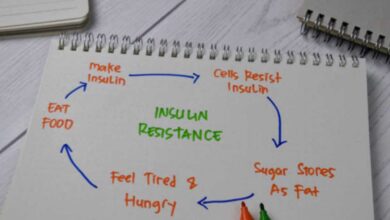
Nutrition is the cornerstone of a child’s overall well-being. However for many foster children, achieving nutritional balance might not have always been a priority in their early years. As a foster career, understanding the vital role of nutrition and how to offer a nourishing environment can make a world of difference to a child’s health and happiness.
Small Changes with a Big Impact
It doesn’t always take a complete overhaul of a diet to make a difference. Start by integrating a variety of fruits and vegetables into daily meals. Vitamins, minerals, and fiber play an essential role in physical and cognitive development.
As well as your fostering allowance from orangegrovefostercare.co.uk, you can also access discounts from retailers like Sainsbury’s and Asda, so you can purchase new healthy, fresh foods for less, to try together as a family. By introducing these foods in a fun and engaging manner, foster children are more likely to embrace positive dietary changes.
Whole grains, lean proteins, and dairy or dairy alternatives should also be on the menu. They provide essential nutrients for energy, growth, and strong bones. Remember, every child is unique. Some might have dietary restrictions or specific needs, and it’s crucial to be attuned to those.
Building a Healthy Relationship with Food
Food is more than just fuel; it’s an experience. Sitting together for meals can help foster children develop a positive association with food and mealtimes. After all, it’s not just about what’s on the plate – the mealtime environment is just as important. Plus, engaging your foster child in meal planning and preparation can help with boosting their self-esteem and teach valuable life skills.
It’s also crucial to bear in mind that some foster children might have had inconsistent access to food in the past. This might lead to concerns about when their next meal will come. By ensuring a regular mealtime routine, you can help ease these anxieties.
See Also: 7+ Impressive Cucumber Juice Benefits For Your Health
Benefits Beyond the Plate
Good nutrition doesn’t just impact physical health. It also plays a pivotal role in cognitive development and emotional stability. A well-nourished child is more likely to focus while in school and engage in social activities. In turn, this can help them integrate better into their new environments and create lasting bonds with those around them.
The Power of Variety and Exploration
Introducing a diverse range of foods can be an exciting adventure for both you and your foster child. Exploring different cuisines can also be educational, helping to encourage a sense of curiosity about the world around them.
For example, a dish like sushi or even ramen noodles can spark conversations about Japanese culture, while making homemade pasta or pizza together can be an enjoyable bonding activity that offers insights into Italian traditions.
A Collaborative Effort
While the primary responsibility may lie with the foster career, it’s important to remember the role of the broader community in ensuring good nutrition. Schools, local organizations, and even neighbors and friends can offer support, advice, or resources to ensure that foster children get the nutritional balance they deserve.
Prioritizing nutritional well-being in foster care brings long-lasting benefits. With balanced meals, a positive eating environment, and an understanding of the unique needs of the child, you can provide a solid foundation for good nutrition and a brighter future.







